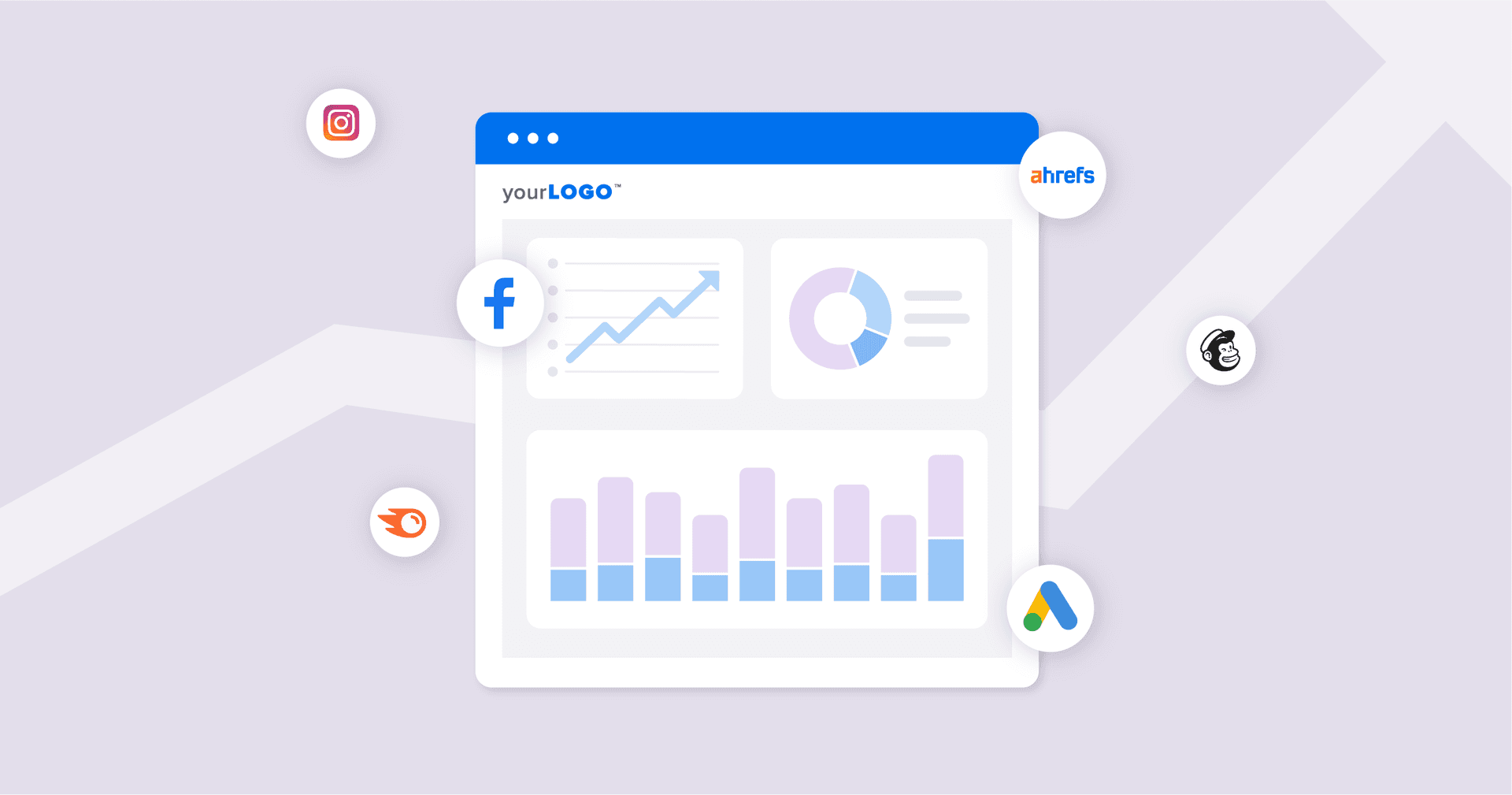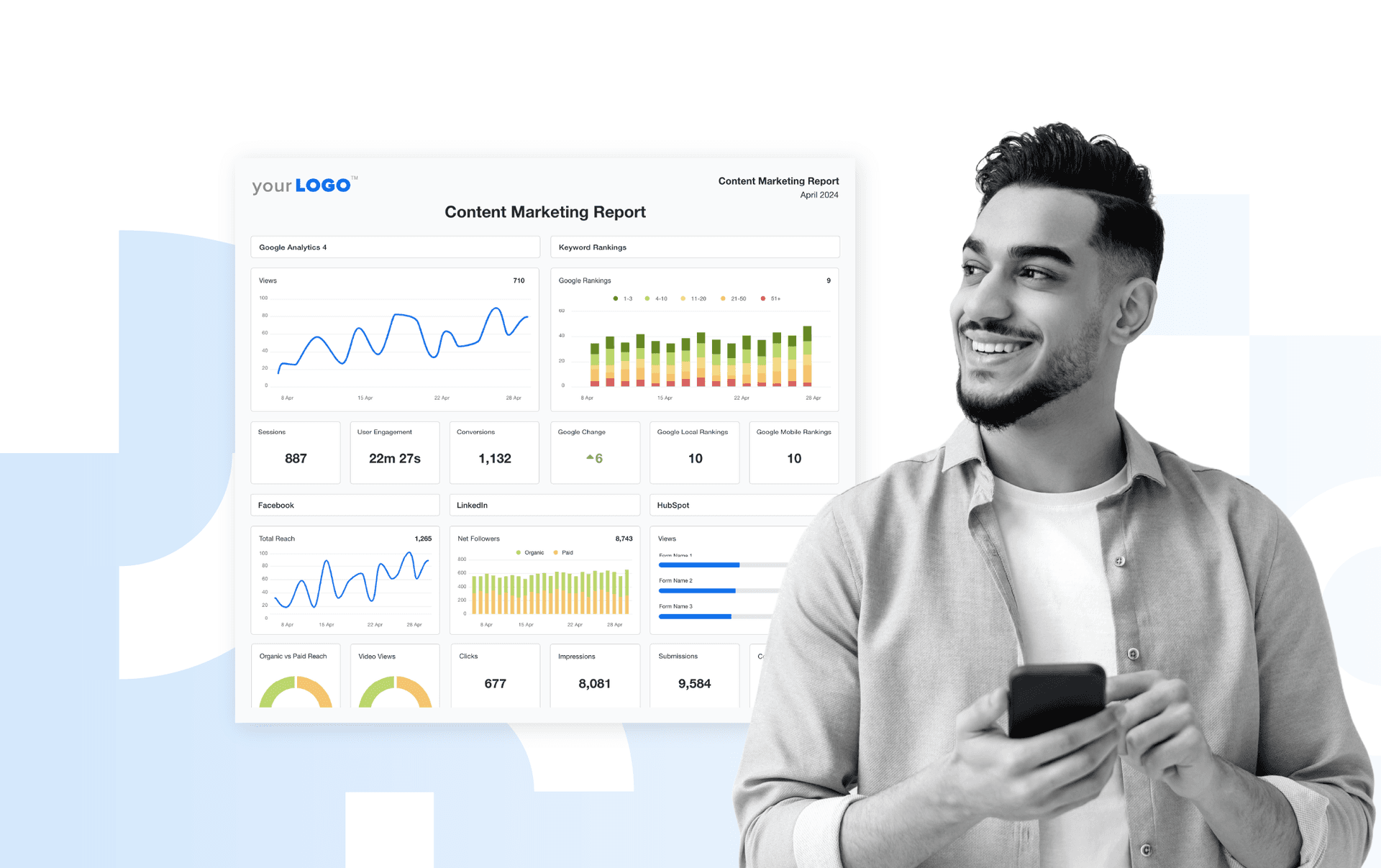Table of Contents
QUICK SUMMARY:
A content marketing report showcases the results of marketing efforts by breaking down key performance indicators and results in a structured format. It demonstrates an agency's commitment to transparency while highlighting the strategic value delivered through content initiatives. This guide explains how to craft detailed reports that effectively communicate success to clients.
The digital world is all about content, and creating a lot more of it, which is great news for you as a content marketer!
But while there’s an abundance of opportunity, it also means the competition has never been more fierce. There are so many skilled content writers and creators out there, so how do you give your agency an edge? That certain je ne sais quoi your ideal clients are looking for?
Would you be surprised to learn that the answer might be a thoughtfully-constructed, results-focused content marketing report?
If you’re a creatively inclined person, the word ‘report’ likely sends a little shiver down your spine. As a content strategist and white label content agency owner for the last 14 years, I know the first few times I approached the hard facts and stats of my work’s performance, I was a little apprehensive.
But, when you break content reporting down into digestible steps, it becomes a painless–and dare I say–enjoyable task. After all, reporting is an invaluable tool to communicate results in a digestible format for clients, highlighting the value your agency brings to the table, and building trust.
This guide gives you everything you need to make an impressive content marketing report in minutes. Let’s get started.
Why Is It Important To Send a Content Marketing Report to Clients?
Content creators are super busy carefully crafting awesome content for clients. It’s easy to question the necessity of reporting when your schedule is jam-packed with other important activities.
But facts are facts: A content marketing report makes an agency appear professional and dedicated to clients while making it easier to sell marketing services going forward. Content marketing reports are even a handy tool for grabbing the attention of potential new clients.
It doesn’t matter how spectacular an agency’s content creation skills are. If a client isn’t seeing the results they’re hoping for, they’ll move on to the next provider. Harsh, but true.
That’s not to say that your agency has failed if a client’s social media content or blog posts aren’t reeling in the dollar signs at a rate previously unknown to man. Content success is difficult to track and measure. Direct content marketing ROI alone isn’t what will benefit your clients.
Content marketing skills offer clients a whole host of benefits that help them grow their businesses and reach their marketing goals in a sustainable way that aligns with their brand values. But it’s an agency’s job to communicate that to them, proving value as a digital marketer.
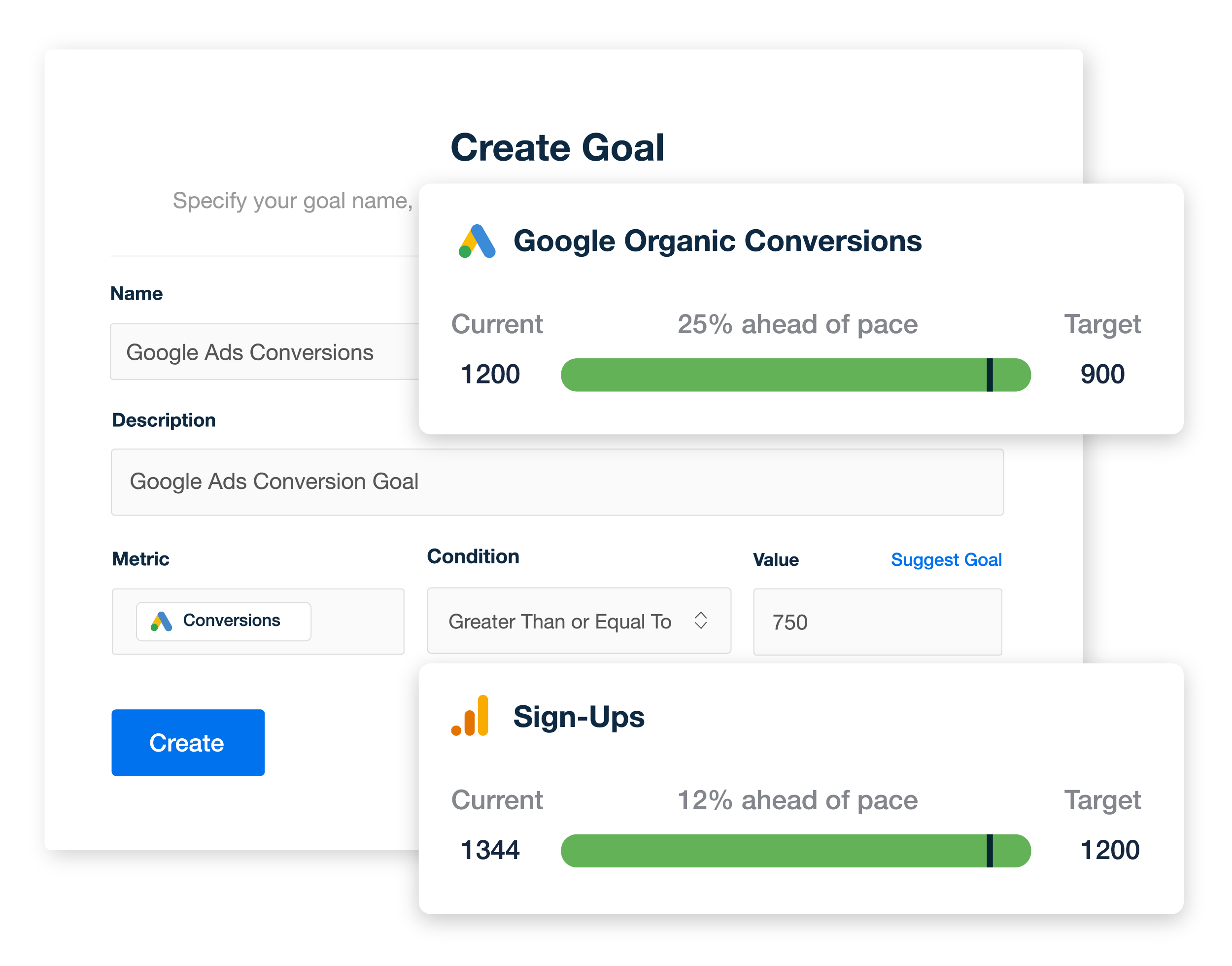
Agency Tip: For maximum client engagement, present your achievements for your clients either over Zoom/Teams or in person, in addition to providing access to the report over email or via a live dashboard that highlights how your agency is achieving client goals. This way, you’re available to field any questions right away and discuss the next steps face-to-face.
How To Create a Compelling Content Marketing Report in 6 Simple Steps
Let’s take a deeper dive into the step-by-step process for creating content marketing reports that are sure to wow your clients.
Step 1: Define the Content Marketing Strategy Goals and Key Metrics
It’s important to be crystal clear on the reason you’re creating content for a client. Of course, this is fundamental to creating impactful content and understanding your target audience, but it also means you won’t be scrambling for proof that you haven’t wasted your client’s time and resources for mediocre ROI.
Consider if you’re creating a report for a single campaign or as a means to demonstrate the effectiveness of the content strategy overall. Next, take into account the individual goals of the client. Think about your team’s content marketing efforts and the KPIs that’ll help propel the client to their target, like:
Climbing the ranks in a search engine, like Google
Boosting organic search results and web traffic
Increasing click-through rate
Improving the quantity and quality of leads
Driving engagement on social media platforms
Helping a client meet specific business goals
Getting on the same page with a client about what they’re hoping to achieve along with specific content marketing metrics before getting started will make life a whole lot easier, while improving the (measurable) quality of the report.
Step 2: Gather the Data and Get Analyzing
Now that the key results are determined, it’s time to dive deep into content marketing analytics.
Collect all the data and insights from different marketing channels to give a well-rounded perspective of the marketing campaign.
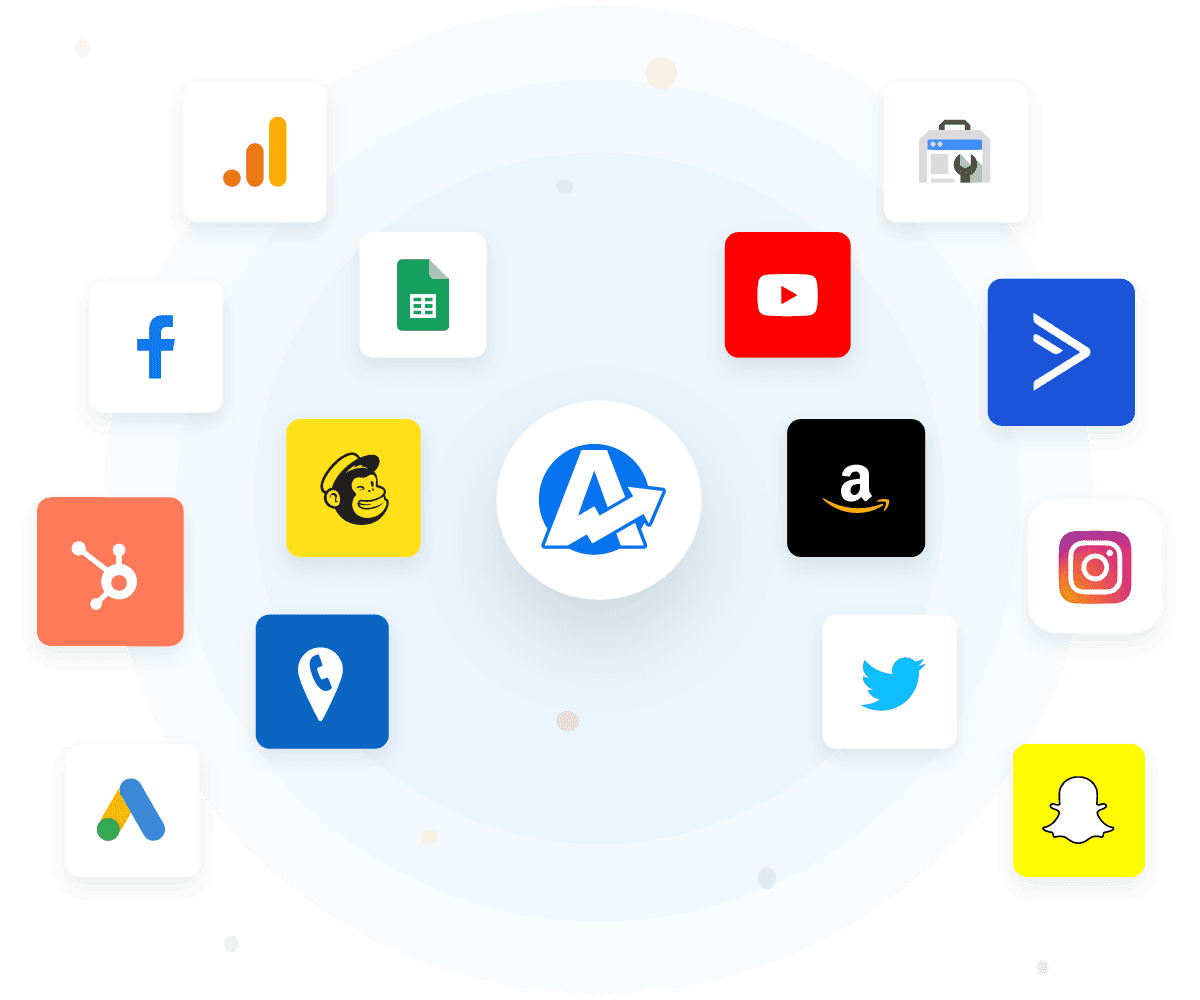
Automatically collect data from over 80 marketing platform integrations to create a comprehensive content marketing report.
When analyzing website content and blog posts, there are multiple tools out there, but I find good old Google Analytics and SE Ranking are great content marketing reporting tools. Both of these platforms are always super reliable and effective for gathering the relevant metrics I need.
These web analytics tools show us the marketing data that helps guide our strategies. For example, we’ll conduct a content analysis that includes engagement metrics, website visitors, and more. We’re then able to create content with the aim of increasing organic traffic with a better understanding of promoting content that will likely convert.
Show the Bigger Content Picture With Google Analytics
Take a content marketing report one step further by showing clients how their content plays a part in their larger marketing campaigns. For example, how does their website traffic connect to their blog post content? Are their users engaged? Are they getting quality leads from the content your agency is producing? Who are their website visitors?
Incorporating Google Analytics helps showcase content marketing metrics, giving clients a transparent and detailed view of how their website’s content is performing.
Some key performance metrics to include:
Clients often look for this information to better understand their content's ROI, helping them make informed decisions on future content marketing budgets. They want to know how many visitors are quality leads and which are turning into paying customers.
With AgencyAnalytics, marketing agencies connect over 80 marketing platforms, like Google Analytics, Hubspot, or Google Search Console, to highlight content marketing metrics.
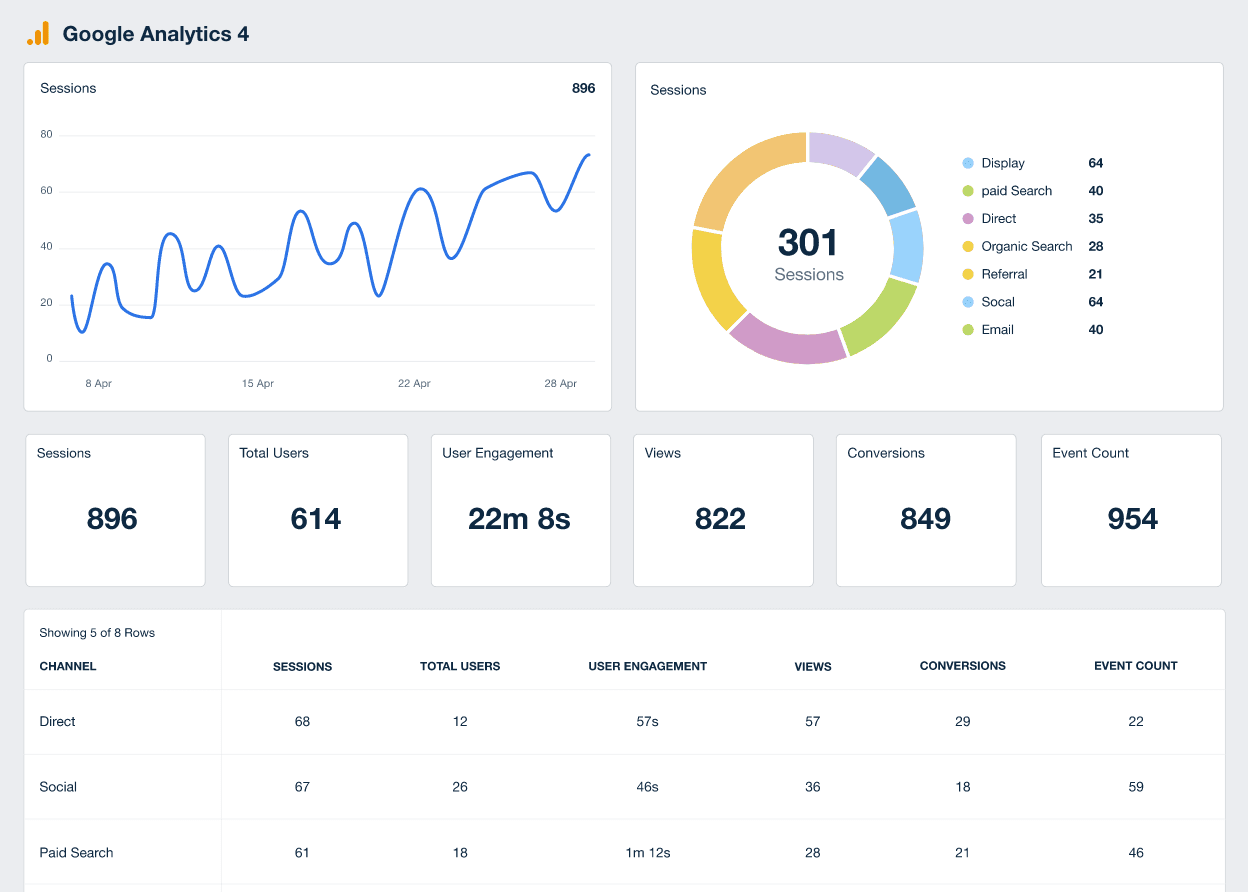
Get started with the Google Analytics Dashboard to easily communicate content marketing metrics with clients. Try it free for 14 days.
Step 3: Create Compelling Visuals
Congratulations! You played the numbers game and now you get to move on to the fun stuff!
Nobody wants to look at numbers uninspiringly thrown into a spreadsheet.
Take a client’s boring data and transform it into aesthetically appealing visualizations that impress and communicate the undeniable success of your content marketing efforts.
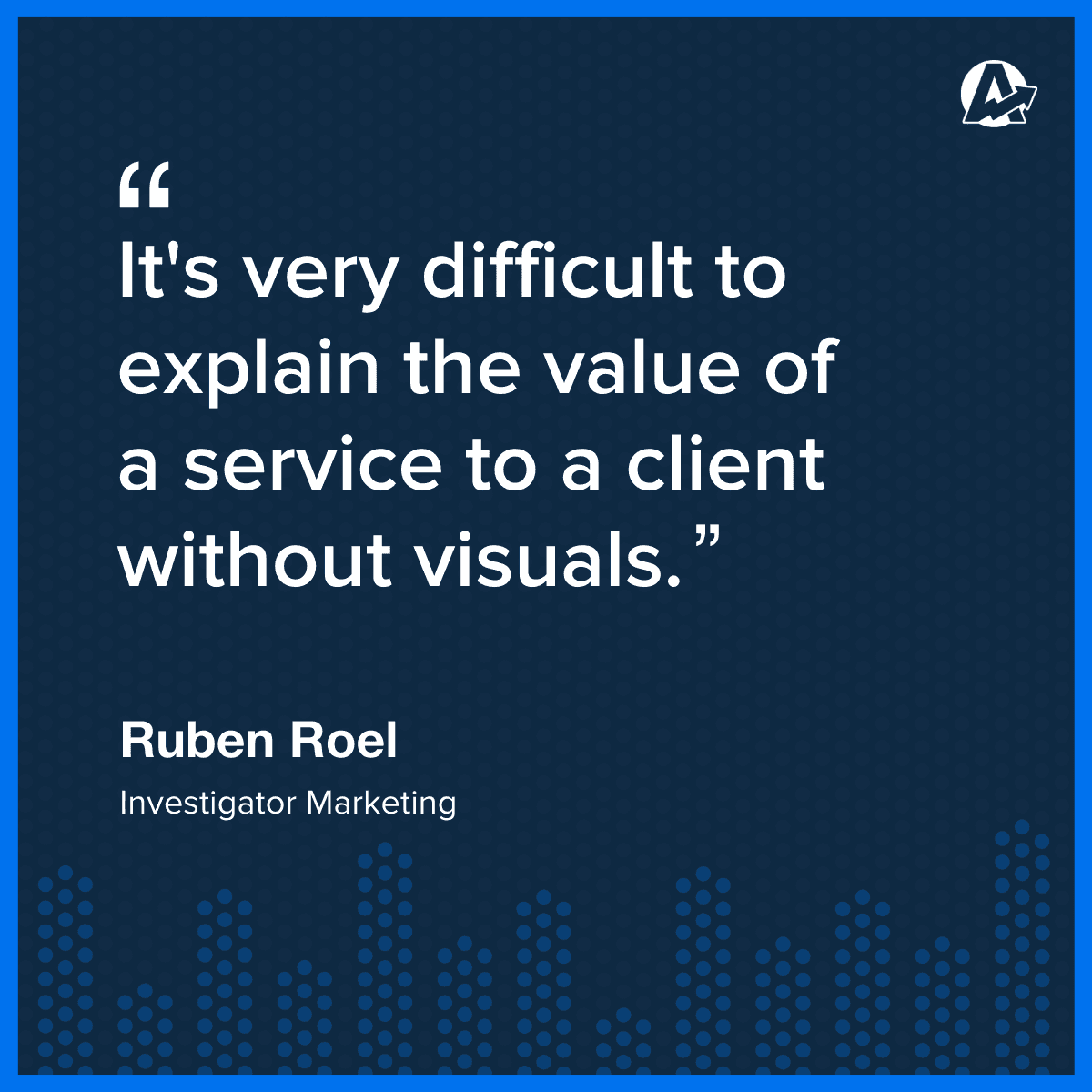
I find the best way to present client data in a clear, digestible way is by creating:
Charts
Graphs
Infographics
Tables
Statistics (think impressive, easy-to-understand percentages)
Not only will data visualizations make a report more interesting and engaging, but they make it easier for clients to understand and remember complex information.
AgencyAnalytics has all of the visualization tools an agency needs to let a client’s marketing data tell a story. From line graphs and map charts to gauge charts and stat widgets, build a customizable content report template in minutes. White-labeling features also allow your agency to feature its branding throughout.
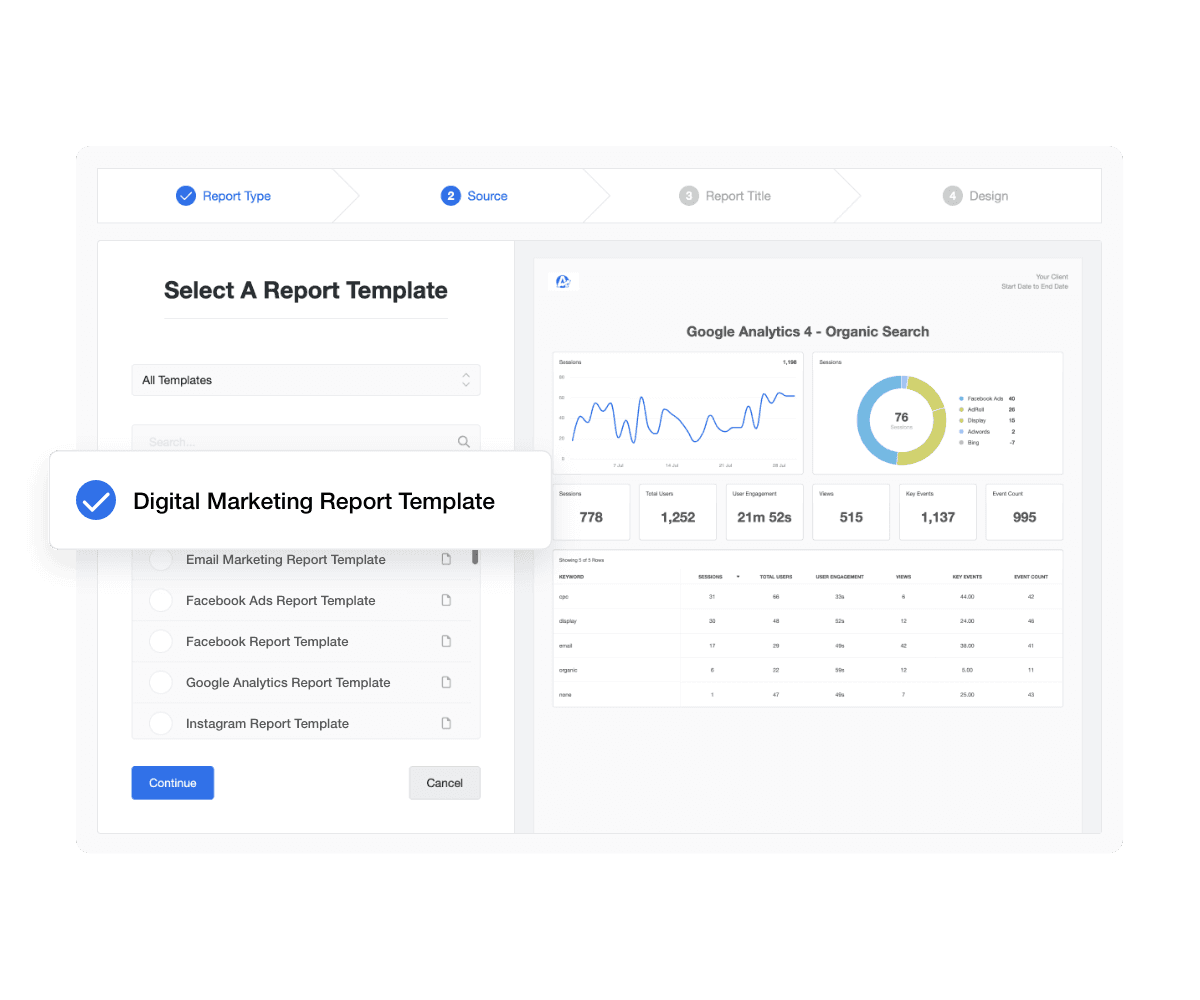
Build stunning marketing reports that you’ll be proud to associate with your agency’s brand. Start your 14-day free trial.
It’s important to remember that content marketing reporting is going to vary from client to client. Just like when you’re creating content, make sure the client is the focus of the content marketing report. After all, it is for them at the end of the day!
For example, you might need to deliver a detailed, high-level summary for a brand-new client to earn their trust. Whereas, long-time partners who you’ve already built up a good rapport with might only need to see the highlights of their content marketing campaign.
Depending on the services your agency offers, it’s a nice touch to deliver client reports in their own unique branding. For example, brand the report with the client's logo instead of your agency's, or place the logos side-by-side in the report to reinforce the benefits of the relationship. Regardless of visual branding, always make sure you’re communicating with them in a voice and tone that resonates with them so the report doesn’t fall flat.
Step 4: Provide Context and Examples
It’s essential to present marketing data in a clear, compelling way. It’s also key to provide enough context around the data to help a client understand what it actually means for their business.
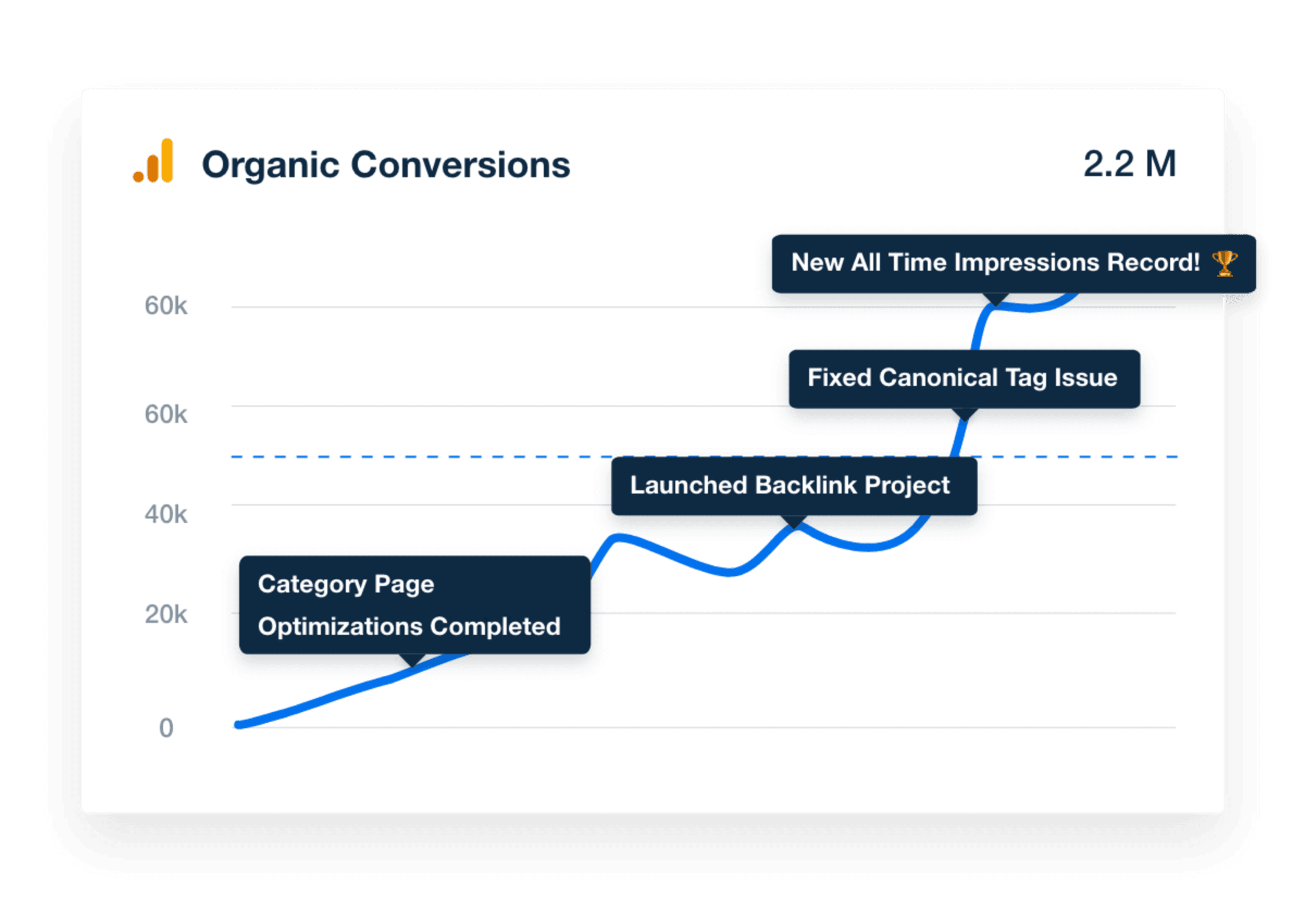
Tell a winning story by adding insightful context to your reports with personalized annotations. Try AgencyAnalytics free for 14 days.
Help them see where their campaign has really hit the mark by outlining factors that influenced its performance, like:
Content trends
Marketing patterns
Points of success
Areas for improvement
The secret weapon to really making content marketing reports land is to deliver real-life examples and case studies from your agency’s professional experience.
For example, one of our blogging clients has seen his top 10 performing web pages filled out with blog posts, his home page, and his contact page. He’s now ranking in the top 3 spot for 17 out of 20 of his most important key phrases. He’s also getting inbound leads for the first time in his 10 years of owning a website.
Make your clients swoon by highlighting the most successful campaigns and published content. How did your agency’s work contribute to their bottom line?
This way, they see the room for their own growth if they continue working with you–which is precisely the goal of your content reports!
Clearly communicate your agency’s success in driving revenue and ROI with a customizable Campaign Performance Report Template. Try AgencyAnalytics free for 14 days!
Step 5: Offer Recommendations and Next Steps
Your agency’s goal is to create long-term partnerships with clients and establish a steady stream of revenue.
Use your content marketing reports to show clients how your agency will be a valuable asset to them–way into the future!
Wrap up the report by suggesting actionable steps clients should take to get them even closer to their goals and fast-track their path to success.
You’re the expert, after all. Demonstrate how your agency has the skills and expertise to optimize a client’s content strategy. Making adjustments to their existing approach and offering suggestions in their content reports shows that your team is open to experimenting with new formats and mediums that may help them tap into their target audience in a more direct way.
You both share the same goal of achieving better results, so really zero in on how to alter the strategy to boost performance and maximize impact in their niche, together.
Step 6: Seek Feedback and Iterate
The most effective way to create compelling content marketing reports worthy of tens across the board is to continuously improve your agency’s skills and service offerings.
Ask your clients for feedback on the experience by asking questions like:
Did they connect with the material?
Did they find the information easy to digest?
Was the report engaging and interesting?
Was the data presented relevant to them?
Do they feel your content efforts have benefited the business?
Some client conversations are difficult, but understanding the experience from their perspective is absolutely invaluable. Really take their feedback on board and infuse their insights into future campaigns and reports to ensure your agency is delivering the most value possible through its services.
The Takeaway
Agencies should be constantly expanding professional parameters and striving to keep up with our fast-paced industry.
Listen to your clients, research the latest trends and best practices, and make sure to stay invested in your work.
At the end of the day, content reports aren’t just about presenting data. They’re about telling the story of how your content will help take your client’s dreams and turn them into a reality.
So, reach for the stars! Your motivation is contagious and is sure to inspire your clients to do the same.

Written by
Abby Wood is the founder of The Content Lab (a white label content agency serving digital agencies worldwide) and Content Goodies (providing white label copywriting templates for web designers).
See how 7000+ marketing agencies help clients win
Start Your Trial NowFree 14-day trial. No credit card required.




